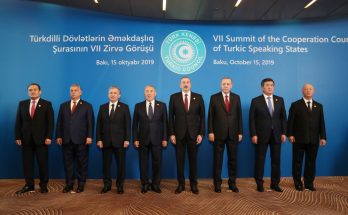 The South Caucasus continues to be a region characterized by volatility and instability, and the international community must remain engaged, particularly in the area of conflict resolution and the promotion of democratic reform, European Union Special Representative
The South Caucasus continues to be a region characterized by volatility and instability, and the international community must remain engaged, particularly in the area of conflict resolution and the promotion of democratic reform, European Union Special Representative
for the South Caucasus Peter Semneby said in an address to the OSCE Permanent
Council today.
He spoke about the EU’s efforts to resolve the conflicts and to promote the consolidation of democracy and rule of law in Armenia, Azerbaijan and Georgia.
“These efforts will only be successful through concerted efforts of the international community. The role of the OSCE is extremely important in this regard and it is the partner of choice for the EU,” he said.
Semneby emphasized that addressing the unresolved conflicts in the region remained a priority for the EU.
“The unresolved conflicts in the South Caucasus are the primary threats to the region’s stability since the status quo is inherently unstable and contains dangers of escalation. This was demonstrated by the August 2008 war in Georgia.
The Nagorno-Karabakh conflict is of particular concern; there are recurring deadly incidents along the line of contact,” he said.
The conflict between the two South Caucasus countries began in 1988 when Armenia made territorial claims against Azerbaijan. Armenian armed forces have occupied 20 percent of Azerbaijan since 1992, including the Nagorno-Karabakh region and 7 surrounding districts. Azerbaijan and Armenia signed a ceasefire agreement in 1994.
The co-chairs of the OSCE Minsk Group – Russia, France, and the U.S. – are currently holding the peace negotiations.
According to the Azerbaijani and Armenian Ministries of Defence, an armed incident that resulted in casualties took place on the night of June 18-19 in the northern part of the contact line of the Nagorno-Karabakh conflict.
“The protracted conflicts also undermine EU efforts to promote political reform and economic development in its Eastern neighbourhood,” Semneby said.
Trend




